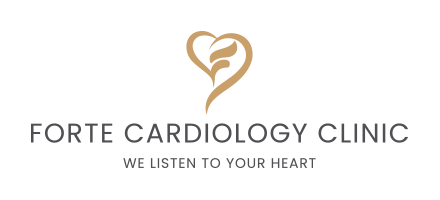Does your heart feel weaker? Like it gets a little harder to run every day, or just a few flights of stairs seem to never end. Is it getting harder for you to push through these feelings when your heart is racing? You go in for a check-up, expecting answers, maybe a prescription, maybe some lifestyle tips. But what if your heart health journey could be more than symptom management? What if your care plan looked at the root causes and not just the surface-level signs? You will be amazed to learn more about functional cardiology, a newer, more holistic approach that’s starting to stand apart from conventional methods.
What Does a Conventional Cardiologist Do?
Conventional cardiologists are specialists in diagnosing and treating heart issues, relying on tried-and-true clinical tools like ECGs, stress tests, cholesterol screenings, and medication management. Their main focus typically includes:
- Identifying risk factors for heart disease, such as high blood pressure, high cholesterol, or blocked arteries.
- Managing urgent conditions like arrhythmias, heart attacks, or angina.
- Prescribing treatments that may involve medication, angioplasty, or even surgery.
This straightforward approach is crucial, especially in emergencies or when dealing with structural heart problems. However, it can sometimes stop short of merely controlling symptoms without exploring the underlying causes of those symptoms.
So, What Does a Functional Cardiologist Do?
A functional cardiologist takes a more holistic and preventive approach. Rather than just addressing symptoms or managing diseases, they strive to uncover the root causes of imbalances. Functional cardiology often examines:
- Inflammation and metabolic markers.
- Nutrition and lifestyle choices.
- Gut health, stress levels, and sleep quality.
- Genetics and hormone balance.
This method helps to connect various body systems. For instance, chronic stress and poor gut health might be contributing to high blood pressure, an issue that medication alone may not completely fix.
Key Differences: Functional vs Conventional
| Focus Area | Conventional Cardiologist | Functional Cardiologist |
| Approach | Symptom-based, reactive | Root cause-focused, preventative |
| Tools | Tests, medication, surgery | Labs, lifestyle plans, nutrition guidance |
| Goal | Manage and control heart disease | Optimise heart health and prevent disease |
| Ideal for | Acute conditions, emergencies | Chronic issues, prevention, long-term wellbeing |
Do You Have to Choose Just One?
Not at all. Many people benefit from a blended approach, conventional cardiology for immediate issues and functional cardiology for long-term prevention and support. At Forte, we work with you to explore both options, ensuring that your heart health plan is designed specifically to suit you and your lifestyle.
Ready to Rethink Your Heart Health?
If you’ve been managing symptoms without feeling any real change or if you’re looking to stay ahead of potential heart issues. It might be time to speak with a functional cardiologist. At Forte, we’re here to help you explore a more personalised path to heart health.
Book a consultation today and discover what a deeper, more connected approach to cardiovascular care can look like for you. Your heart deserves more than just quick fixes. Let’s give it the care it really needs.








